The term “agent” has been defined under sub-section (5) of section 2 of the CGST Act as follows: “agent” means a person, including a factor, broker, commission agent, arhatia, del credere agent, an auctioneer or any other mercantile agent, by whatever name called, who carries on the business of supply or receipt of goods or services or both on behalf of another.
Oxford Dictionary defines an “Agent” as “a person who acts on behalf of another person or group.”
The connotation of the word “Agent” under the GST Legislature is also on same lines.
Under Erstwhile Service Tax Regime:
The Commission Agent was defined as under:
“Commission Agent” means any person who acts on behalf of another person and causes sale or purchase of goods, or provision or receipt of services, for a consideration, and includes any person who, while acting on behalf of another person –
(i) deals with goods or services or documents of title to such goods or services; or
(ii) collects payment of sale price of such goods or services; or
(iii) guarantees for collection or payment for such goods or services; or
(iv) undertakes any activities relating to such sale or purchase of such goods or services.”
The services rendered by Commission Agents were taxable under the Head “Business Auxiliary Services” under clause Section 65 (105) (zzb) of the Finance Act, 1994, w.e.f. 01.07.2003 vide Notification No.7/2003- ST dated 20.6.2013.
Under Present GST Regime:
The term “agent” has been defined under sub-section (5) of section 2 of the CGST Act as follows:
“agent” means a person, including a factor, broker, commission agent, arhatia, del credere agent, an auctioneer or any other mercantile agent, by whatever name called, who carries on the business of supply or receipt of goods or services or both on behalf of another.
The following two key elements emerge from the above definition of agent:
a) the term “agent” is defined in terms of the various activities being carried out by the person concerned in the principal-agent relationship; and
b) the supply or receipt of goods or services has to be undertaken by the agent on behalf of the principal.
(I) KEY ASPECTS IN GST LEGISLATION:
(a) GST Registration:
A Commission Agent is required to obtain Compulsory Registration u/s 24(vii) of CGST Act, irrespective of its turnover. Thus, the threshold limit of Rs.20 lakh as enunciated in section 22(1) of CGST Act, does not apply to an Agent.
The extract of Section 24 of CGST Act, 2017 is reproduced as under:
Compulsory registration in certain cases.
“Notwithstanding anything contained in sub-section (1) of section 22, the following categories of persons shall be required to be registered under this Act,––
(i)…..
……..
(vii) persons who make taxable supply of goods or services or both on behalf of other taxable persons whether as an agent or otherwise;
(b) Value of Taxable Supply:
The value of taxable supply rendered by an agent shall include the amount of consideration/commission being received by the agent, for the value of goods/service provided by the agent to his principal. It shall not include the amount of reimbursement claimed by the agent from the principal.
(c) GST Rate, SAC Code & Effective Date of Application:
GST Rate of 18% is applicable on the taxable value of supply provided by the agent, except in few nil rated categories.
Bird’s Eye View of All Categories of “Commission Agents” under GST Legislature
| Description | SAC Code | Rate (%) | Effective From |
| Services (22) | |||
| Land sales on a fee/commission basis or contract basis | 997223 | 18 | 28-06-2017 |
| Building sales on a fee/commission basis or contract basis | 997222 | 18 | 28-06-2017 |
| Services provided for a fee/commission or contract basis on retail trade | 996211 | 18 | 28-06-2017 |
| Services provided for a fee/commission or contract basis on wholesale trade | 996111 | 18 | 28-06-2017 |
| Property management services on a fee/commission basis or contract basis | 997221 | 18 | 28-06-2017 |
| Real estate appraisal services on a fee/commission basis or contract basis | 997224 | 18 | 28-06-2017 |
| Sale of other advertising space or time (except on commission) | 998366 | 18 | 28-06-2017 |
| Purchase or sale of advertising space or time, on commission | 998362 | 18 | 28-06-2017 |
| Services in wholesale trade. Explanation-This service does not include sale or purchase of goods but includes: Services of commission agents, commodity brokers, and auctioneers and all other traders who negotiate whole sale commercial transactions between buyers and sellers, for a fee or commission. Services of electronic whole sale agents and brokers, Services of whole sale auctioning houses. | 9961 | 18 | 28-06-2017 |
| Service provided by Fair Price Shops to Central Government by way of sale of wheat, rice and coarse grains under Public Distribution System (PDS) against consideration in the form of commission or margin. | 9962 | Nil | 8/22/2017 |
| Service provided by Fair Price Shops to Central Government by way of sale of wheat, rice and coarse grains under Public Distribution System (PDS) against consideration in the form of commission or margin. | 9961 | Nil | 8/22/2017 |
| Service provided by Fair Price Shops to State Governments or Union territories by way of sale of kerosene, sugar, edible oil, etc. under Public Distribution System (PDS) against consideration in the form of commission or margin. | 9962 | Nil | 8/22/2017 |
| Service provided by Fair Price Shops to State Governments or Union territories by way of sale of kerosene, sugar, edible oil, etc. under Public Distribution System (PDS) against consideration in the form of commission or margin. | 9961 | Nil | 8/22/2017 |
| Support services to agriculture, forestry, fishing, animal husbandry. Services relating to cultivation of plants and rearing of all life forms of animals, except the rearing of horses, for food, fibre, fuel, raw material or other similar products or agricultural produce by way of
(a) agricultural operations directly related to production of any agricultural produce including cultivation, harvesting, threshing, plant protection or testing; (b) supply of farm labour; (c) processes carried out at an agricultural farm including tending, pruning, cutting, harvesting, drying, cleaning, trimming, sun drying, fumigating, curing, sorting, grading, cooling or bulk packaging and such like operations which do not alter the essential characteristics of agricultural produce but make it only marketable for the primary market; (d) renting or leasing of agro machinery or vacant land with or without a structure incidental to its use; (e) loading, unloading, packing, storage or warehousing of agricultural produce; (f) agricultural extension services; (g) services by any Agricultural Produce Marketing Committee or Board or services provided by a commission agent for sale or purchase of agricultural produce. |
9986 | Nil | 28-06-2017 |
(d) GST Returns:
An Agent registered as Normal GST Dealer shall file:
GSTR-3B – monthly;
GSTR-1 – quarterly;
GSTR-2, GSTR-3 – yet to be notified;
GSTR-9 – annually.
(e) Input Tax Credit: An Agent can claim the Input Tax Credit on all the Inputs and Input Services used for his business purpose.
(II) Analysis of Applicability of GST on Indenting Agents/Commission Agents rendering services as an “Intermediary” between an exporter abroad receiving such services and an Indian importer.
The term ‘Intermediary’ has been defined in Section 2(13) of IGST Act, 2017 as under:-
‘intermediary’ means a broker, an agent or any other person, by whatever name called, who arranges or facilitates the supply of goods or services or both, or securities, between two or more persons, but does not include a person who supplies such goods or services or both or securities on his own account”
The question of applicability or otherwise of GST on commission received by Indian Indenting/Commission Agents for rendering services as an “Intermediary” between an exporter abroad receiving such services and an Indian importer was the subject matter of consideration in a recent Ruling dated 10/08/2018, of the Hon’ble AAR in the case of Mrs. Vishakhar Prashant Bhave – Micro Instruments (GST AAR Maharashtra), in Appeal No. GST-ARA-23/2018-19/B-87.
In the said Ruling, the Hon’ble AAR has answered the raised questions as under :
“Question (i) Whether the “Commission” received by the Applicant in convertible Foreign Exchange for rendering services as an “Intermediary” between an exporter abroad receiving such services and an Indian importer of an Equipment, is an “export of service” falling under section 2(6) & outside the purview of section 13 (8) (b), attracting zero-rated tax under section 16 (1) (a) of the Integrated Goods and Services Tax Act, 2017?
Answer :- Answered in the negative.
Question (ii) If the answer to the Q. (i) is in the negative, whether the impugned supply of service forming an integral part of the cross-border sale/purchase of goods, will be treated as an “intra-state supply” under section 8 (1) of the IGST Act read with section 2(65) of the MGST Act attracting CGST/MGST ? And, if so at what Rate?
Answer: The said supply will be treated as Inter-State Supply and not Intra State Supply and IGST will be levied @ 18%.”
In answering the above questions, the Hon’ble AAR have observed that the applicant falls in the category of “intermediary” as defined in section 2(13) of IGST Act, 2017 and as the supplier of service, i.e the applicant is located in India and the recipient of service i.e. foreign exporter is located outside India, Section 13 of the IGST Act, 2017 would be applicable to determine the place of service.
The Hon’ble AAR further observed that as per Section 13(8)(b) of the IGST Act, the place of supply of “intermediary services” shall be the location of the supplier of services, in this case, the applicant. Since the place of supply of services in the instant case is in taxable territory of India, the said intermediary services cannot be treated as export of services under the provisions of the GST laws. In order to classify as ‘export of service’, as per section 2(6) of the Integrated Goods and Service Tax Act, 2017, one of the crucial condition as contained under sub-clause (iii) is that the place of supply of service should be outside India. In the subject case, the place of supply shall be location of the supplier of services i.e. in India and therefore such ‘intermediary services’ cannot be classified as ‘export of services’. In case the intermediary services are provided to the recipient located outside India, the inter-state provisions as contained under section 7(5)(c) shall be applicable and hence IGST is payable under such transaction.
It is pertinent to mention here that Section 13 of IGST Act 2017, contains the provisions concerning the determination of place of supply of services where location of supplier or location of recipient is outside India.
In such cases, as per the default section 13(2) of IGST, the place of supply of services except the services specified in sub-sections (3) to (13) of section 13, shall be the location of the recipient of services, which is outside India.
However eleven exceptions have been carved out as contained in sub sections (3) to (13) of section 13 of IGST Act, wherein, the location of the supplier of services has been said to be the place of supply. One such exception is that of “intermediary services” as contained in clause (b) of subsection (8) of section 13 of IGST Act.
However, in view of the multiple representations from the stake holders in the Industry, the GST Legislative Authorities are considering to make suitable amendments so as to bring in the “intermediary services” within the purview of default section 13(2) instead of the exception carved out in section 13(8)(b) of IGST Act, so as to enable the consideration of such “intermediary services” being performed by Indian indenting agents to the foreign exporters as “export of services” and as such to bring the said intermediary services from outside the ambit of GST levy.
(III) Scope of Principal-Agent relationship in the context of Schedule I of the CGST Act
In terms of Schedule I of the Central Goods and Services Tax Act, 2017 (the “CGST Act”), the supply of goods by an agent on behalf of the principal without consideration has been deemed to be a supply. In this connection, in order to clarify some of the issues regarding the scope and ambit of the principal-agent relationship under GST, it will be worthwhile to consider the undermentioned legal provisions and their implications.
The term “agent” has been defined under sub-section (5) of section 2 of the CGST Act as follows:
“agent” means a person, including a factor, broker, commission agent, arhatia, del credere agent, an auctioneer or any other mercantile agent, by whatever name called, who carries on the business of supply or receipt of goods or services or both on behalf of another.
As per section 182 of the Indian Contract Act, 1872, an “agent” is a person employed to do any act for another, or to represent another in dealings with third person. The person for whom such act is done, or who is so represented, is called the “principal”. As delineated in the definition, an agent can be appointed for performing any act on behalf of the principal which may or may not have the potential for representation on behalf of the principal. So, the crucial element here is the representative character of the agent which enables him to carry out activities on behalf of the principal.
From this, it can be deduced that the crucial component for covering a person within the ambit of the term “agent” under the CGST Act is corresponding to the representative character identified in the definition of “agent” under the Indian Contract Act, 1872.
Further, the two limbs of any supply under GST are “consideration” and “in the course or furtherance of business”. Where the consideration is not extant in a transaction, such a transaction does not fall within the ambit of supply. But, in certain scenarios, as elucidated in Schedule I of the CGST Act, the key element of consideration is not required to be present for treating certain activities as supply. One such activity which has been detailed in para 3 of Schedule I (hereinafter referred to as “the said entry”) is reproduced hereunder:
3. Supply of goods—
(a) by a principal to his agent where the agent undertakes to supply such goods on behalf of the principal; or
(b) by an agent to his principal where the agent undertakes to receive such goods on behalf of the principal.
Here also, it is worth mentioning that all the activities between the principal and the agent and vice versa do not fall within the scope of the said entry.
Firstly, the supply of services between the principal and the agent and vice versa is outside the ambit of the said entry, and would therefore require “consideration” to consider it as supply and thus, be liable to GST.
Secondly, the element identified in the definition of “agent”, i.e., “supply or receipt of goods on behalf of the principal” has been retained in this entry.
It may be noted that the crucial factor is how to determine whether the agent is wearing the representative hat and is supplying or receiving goods on behalf of the principal. Since in the commercial world, there are various factors that might influence this relationship, it would be more prudent that an objective criteria is used to determine whether a particular principal-agent relationship falls within the ambit of the said entry or not. Thus, the key ingredient for determining relationship under GST would be whether the invoice for the further supply of goods on behalf of the principal is being issued by the agent or not. Where the invoice for further supply is being issued by the agent in his name then, any provision of goods from the principal to the agent would fall within the fold of the said entry. However, it may be noted that in cases where the invoice is issued by the agent to the customer in the name of the principal, such agent shall not fall within the ambit of Schedule I of the CGST Act. Similarly, where the goods being procured by the agent on behalf of the principal are invoiced in the name of the agent then further provision of the said goods by the agent to the principal would be covered by the said entry. In other words, the crucial point is whether or not the agent has the authority to pass or receive the title of the goods on behalf of the principal.
Looking at the convergence point between the character of the agent under both the CGST Act and the Indian Contract Act, 1872, the following scenarios are discussed, for the sake of better understanding:
Scenario 1
Mr. A appoints Mr. B to procure certain goods from the market. Mr. B identifies various suppliers who can provide the goods as desired by Mr. A, and asks the supplier (Mr. C) to send the goods and issue the invoice directly to Mr. A. In this scenario, Mr. B is only acting as the procurement agent, and has in no way involved himself in the supply or receipt of the goods. Hence, in accordance with the provisions of this Act, Mr. B is not an agent of Mr. A for supply of goods in terms of Schedule I.
Scenario 2
M/s XYZ, a banking company, appoints Mr. B (auctioneer) to auction certain goods. The auctioneer arranges for the auction and identifies the potential bidders. The highest bid is accepted and the goods are sold to the highest bidder by M/s XYZ. The invoice for the supply of the goods is issued by M/s XYZ to the successful bidder. In this scenario, the auctioneer is merely providing the auctioneering services with no role played in the supply of the goods. Even in this scenario, Mr. B is not an agent of M/s XYZ for the supply of goods in terms of Schedule I.
Scenario 3
Mr. A, an artist, appoints M/s B (auctioneer) to auction his painting. M/s B arranges for the auction and identifies the potential bidders. The highest bid is accepted and the painting is sold to the highest bidder. The invoice for the supply of the painting is issued by M/s B on the behalf of Mr. A but in his own name and the painting is delivered to the successful bidder. In this scenario, M/s B is not merely providing auctioneering services, but is also supplying the painting on behalf of Mr. A to the bidder, and has the authority to transfer the title of the painting on behalf of Mr. A. This scenario is covered under Schedule I.
A similar situation can exist in case of supply of goods as well where the C&F agent or commission agent takes possession of the goods from the principal and issues the invoice in his own name. In such cases, the C&F/commission agent is an agent of the principal for the supply of goods in terms of Schedule I. The disclosure or non-disclosure of the name of the principal is immaterial in such situations.
Scenario 4
Mr A sells agricultural produce by utilizing the services of Mr B who is a commission agent as per the Agricultural Produce Marketing Committee Act (APMC Act) of the State. Mr B identifies the buyers and sells the agricultural produce on behalf of Mr. A for which he charges a commission from Mr. A. As per the APMC Act, the commission agent is a person who buys or sells the agricultural produce on behalf of his principal, or facilitates buying and selling of agricultural produce on behalf of his principal and receives, by way of remuneration, a commission or percentage upon the amount involved in such transaction.
In cases where the invoice is issued by Mr. B to the buyer, the former is an agent covered under Schedule I. However, in cases where the invoice is issued directly by Mr. A to the buyer, the commission agent (Mr. B) doesn‟t fall under the category of agent covered under Schedule I.
In scenario 1 and scenario 2, Mr. B shall not be liable to obtain registration in terms of clause (vii) of section 24 of the CGST Act. He, however, would be liable for registration if his aggregate turnover of supply of taxable services exceeds the threshold specified in sub-section (1) of section 22 of the CGST Act. In scenario 3, M/s B shall be liable for compulsory registration in terms of the clause (vii) of section 24 of the CGST Act. In respect of commission agents in Scenario 4, notification No. 12/2017 Central Tax (Rate) dated 24.06.2017 has exempted “services by any APMC or board or services provided by the commission agents for sale or purchase of agricultural produce” from GST. Thus, service provided by the commission agent for sale or purchase of agricultural produce is exempted. Such commission agents (even when they qualify as agent under Schedule I) are not liable to be registered according to sub-clause (a) of sub-section (1) of section 23 of the CGST Act, if the supply of the agricultural produce, and /or other goods or services supplied by them are not liable to tax or wholly exempt under GST. However, in cases where the supply of agricultural produce is not exempted and liable to tax, such commission agent shall be liable for compulsory registration under sub-section (vii) of section 24 of the CGST Act.
Source: CBIC Circular No. 57/31/2018-GST, dated the 4th September, 2018
“Change is often the agent of progress in ways we can’t always readily see in the early days & GST Reform is one such change agent.”







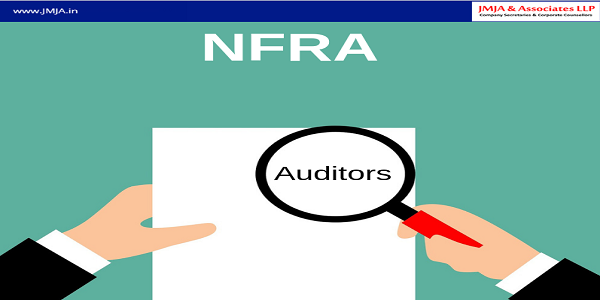



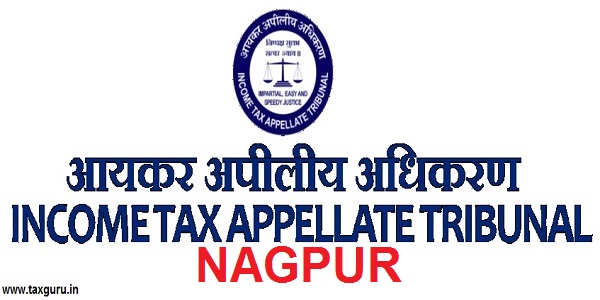
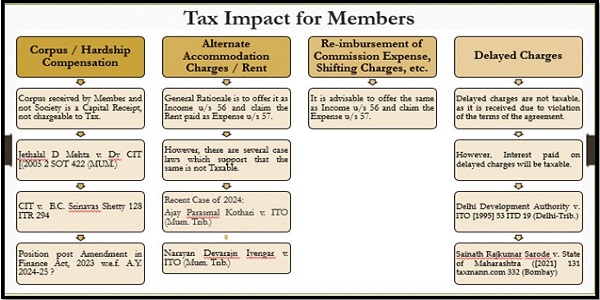

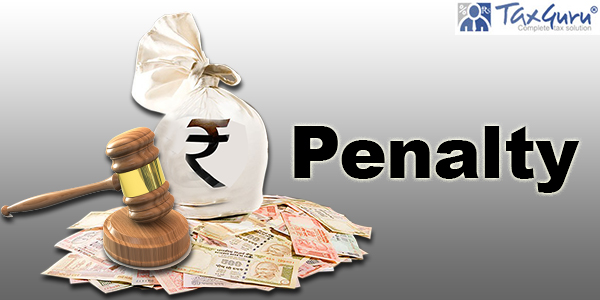

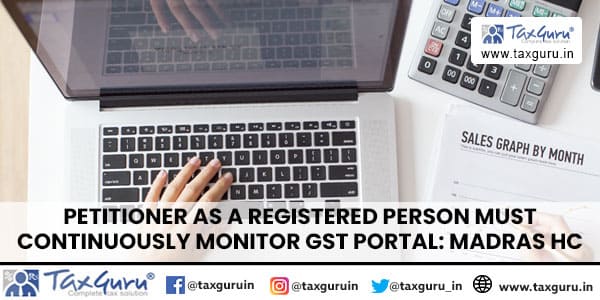
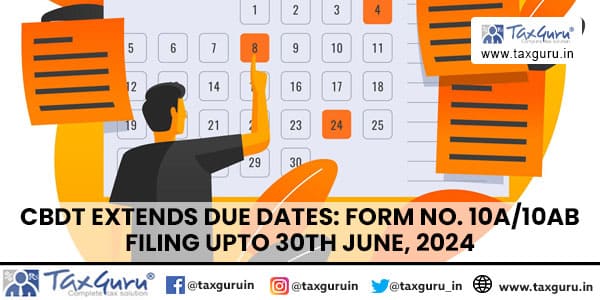
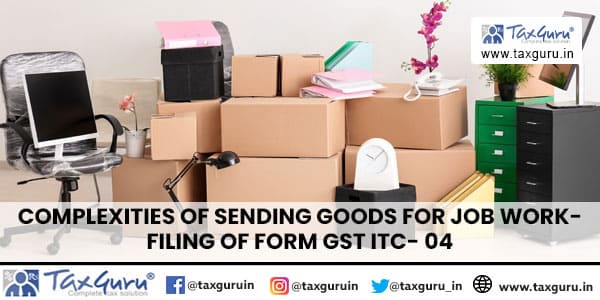


I am a self employed unregistered/making real estate business earning of rs. 10 lacks per year as commission. How to file itr in india. And no transaction is through account
My client GST registration related to textile business and also received insurance commission from insurance company as a insurance agent so Commission on Insurance business as a agent liable or not..
please give Proper Clarification..
thanks in advance
Sir,
My client doing as a agent for SBI Home Loan, New India Assurace co ltd. As per their statement, GST not applicable for Agents and they are not paid me also. can you confirm this
please clarify – i am an agent with life insurance – is it regulatory to deduct gst on commission received – earned. my t/o is less than 20L. shall i take gst RC
nice article about gst on commision.
Suppose I am going to earn a one time commission of more than rs 20 lakhs do i have to register under gst . Do i have to raise an invoice with gst amt . Also how much tds has to be deducted by the payer. Please guide
a very well article found which i was searching for and when it came to know that It is written by you, i felt very proud.
Thanks a lot Sir
a very good and comprehensive article
A PERSON /TRANSPORT CO /SERVICE AGENT AND OTHERS, ARRANGE FOR LOAD TO TRUCKS AND TAKE SOME COMMISSION (NOT PERCENTAGE BUT SOME LUMP SUM AMOUNT) OR BROKERAGES FROM TRUCK (NOT FREIGHT), AND THE TOTAL COLLECTION IS BELOW 20 LAKH, DOES THIS INCOME RECEIVED COME UNDER GST. SHOULD THE PARTY REGISTER HIMSELF FOR GST. SMALL TRANSPORTER DOES NOT ISSUE ANY LORRY RECEIPT TO SUPPLIER OR PURCHASER. ONLY SENDS THE VEHICLE TO OTHER TRANSPORTERS. (LORRY BROKERS IN GENERAL LANGUAGE}
Very good article